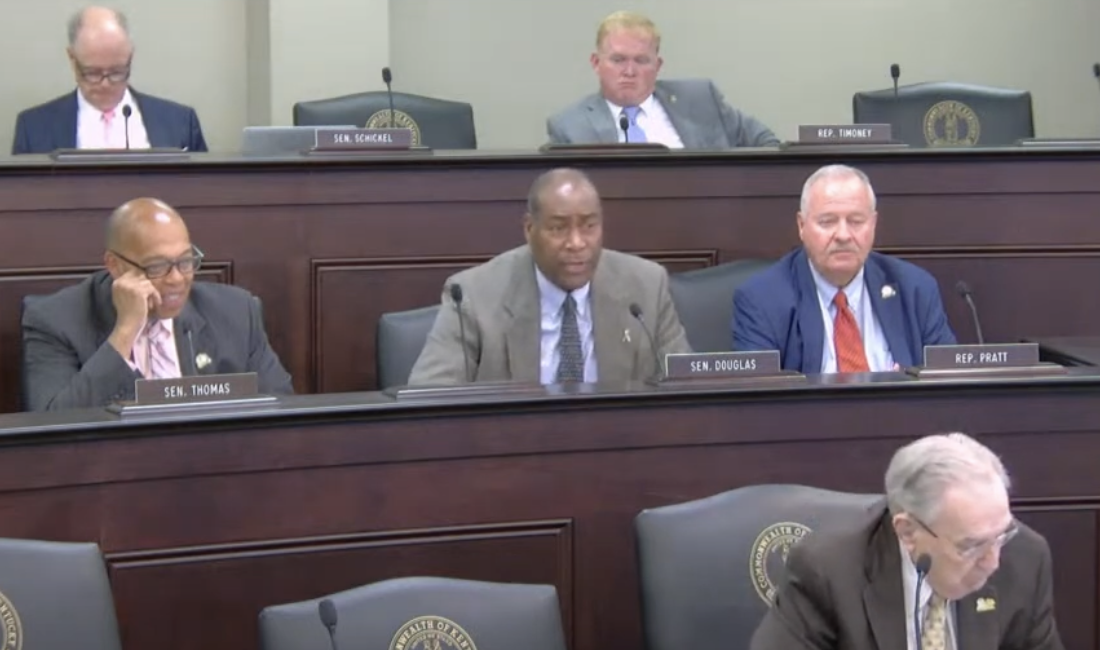Responsible Gambling advocates met with Kentucky lawmakers in Frankfort last week and urged them to provide public funding for addiction and problem gambling treatment programs and awareness initiatives.


Mike Stone, the executive director for the Kentucky Council on Problem Gambling (KYCPG), told members of the Interim Joint Committee on Licensing, Occupations, and Administrative Regulations on Thursday that research indicates up to 64,000 Kentuckians are addicted to gambling, while another 165,000 show problem gambling behaviors.
And the numbers are growing, he said. The Gamblers Anonymous (GA) phone list in Lexington has doubled in size over the last two years, and calls and texts to the 1-800-GAMBLER hotline have also shown significant increases.
That rise also comes as the number of slot-like historical horse racing machines (HHR) have risen substantially in the state. There were 5,569 HHR machines in play in Kentucky in June, with hundreds more that have come online since. That’s almost doubled from the 2,829 machines that tracks operated in June 2019.
While Kentucky is often associated with horse racing, other forms of legal gambling are prevalent across the state. Stone showed the committee maps of charitable bingo and lottery retailers with pinpoints dotting all parts of the state. He and other advocates also noted the rise across the state of unregulated skill machines, which they consider gambling.
Stone also showed two other maps revealing the locations of the seven active certified gambling counselors and the paltry number of regular GA meetings that take place in Kentucky and surrounding states. In Kentucky, the GA map showed most meetings occur inside the state’s “Golden Triangle,” the population centers of Louisville, Lexington, and Northern Kentucky.
More Than Treatment Needed
Most of the lawmakers’ questions and comments pertained to providing treatment for problem and addicted gamblers. However, Stone called on them to look at the bigger picture.
The prevention and awareness aspect of this issue may be even more important as our society moves towards a legitimatization and acceptance of gambling as part of our culture,” Stone said. “We need to have programs that educate and make people aware of what the potential is, and that is also what a large part of the money that we’re talking about would go toward.”
KYCPG has estimated that a problem and addicted gambling program would need about $1.4 million in its first year of operations and up to $3.7 million in its fifth year. The council has called on the state legislature to allocate funding from tax revenues received from gaming operations to pay for treatment services and public awareness and prevention campaigns.
With that kind of funding, less than 1% of the money the state receives from gaming sources, a Kentucky problem gambling awareness program would likely be able to create targeted campaigns that raise awareness of how certain segments of the population are vulnerable to becoming addicts or developing other problems. A similar initiative in Ohio has created campaigns geared toward college students, seniors, and other groups.
KYCPG manages the 1-800-GAMBLER service in Kentucky in conjunction with RiverValley Behavioral Health, a regional community mental health center in Western Kentucky. Stone said the council has an annual budget of about $80,000, with gaming operators covering about $50,000 of that.
Stone said that the Kentucky Lottery does pay for some public service billboards and advertising related to problem gambling and that racetracks also use signage and publish ads in their racing programs regarding the issue.
Discussion Dates Back Nearly 20 Years
The discussion of a problem gambling fund is not a new one in Kentucky. Stone recalled a 2003 study called for by the legislature to look into the issue. That resolution calling for that study was proposed by then-state Rep. C.B. Embry. Embry, coincidentally, passed away Thursday after a long bout with cancer and just days after he formally resigned as a state senator.
This past session House Licensing, Occupations, and Administrative Regulations Chair Adam Koenig (R-Erlanger) filed House Bill 609, which called for allocating the $225 million the state received from the PokerStars settlement to fund a problem gambling program. That was eventually amended to $75 million, and while it passed the House overwhelmingly, it did not get a vote in the Senate before the session ended in April.
“That money is now in the general fund, and I’m sure has been budgeted and on its way to being spent,” said Koenig, who lost his seat in a May primary. “So, you’ll have to find a different method going forward, but I would challenge the members of this committee next year to find a way to make that happen.”
Koenig also noted that House Bill 607, best known for establishing penny breakage at racetracks, also required the tracks to set up self-exclusion lists for their historical horse racing parlors.
Lawmaker States His Concerns
Senate Republicans on the joint committee said Thursday that they understand there’s a problem and a need. However, they’re not convinced dedicating revenues is the way to tackle it.
State Sen. Donald Douglas (R-Nicholasville) said the focus should be on state universities to produce more certified counselors and therapists, especially since colleges offer degree programs that, he added, do not lead to jobs tied to them.
I do think we need to start utilizing some of the facilities that we already have instead of creating new funding streams,” said Douglas. “I think our taxpayers in the Commonwealth are probably getting a little bit tired of having to pay for a lot of things that perhaps they don’t really participate in.”
One semi-retired counselor, though, told lawmakers it will take more than just producing new therapists, especially since the opportunity to gamble has risen exponentially in recent years.
“We have learned as professionals over the years that we can’t do this by ourselves,” Curtis Barrett, Ph. D. said. “It’s too big for the profession. It requires public awareness and public action and public funding.”
The post Kentucky Needs State-Backed Problem Gambling Fund, Advocates Say appeared first on Casino.org.
